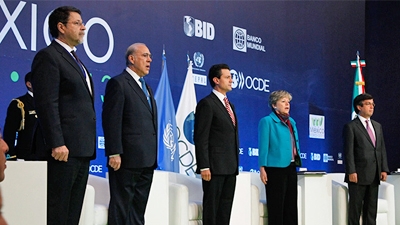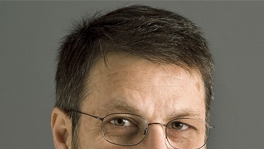2013 might after all become the year ancient Mayans described as the “end of the world” as we know it, and the beginning of a brand new era.
Mexico’s forebears may have been vindicated this week after a gathering of development, business and government leaders concluded that Mexico is, indeed, entering a new economic chapter.
With its huge economic potential and a new, energetic leadership, Mexico could become the new growth and innovation engine for the region, said experts at the ForoMexico2013 –a high-level debate on making Mexico more prosperous and inclusive.
“Mexico can indeed find its place among the most advanced economies in the world”, said World Bank Regional Vice President Hasan Tuluy. “In order for that to happen, though, it needs to move from its current mid-income status towardsbecoming a middle-class society,” Hasan added.
The essential drivers of such ambitions are growth which includes more people and care for the environment while economic expansion takes place. These are already strategic goals in the government’s agenda, the meeting heard.
#ForoMx2013, a top gathering of political and development leaders, became a trending topic across Mexico on Wednesday, highlighting the global importance of such meetings –one of Mexico’s new President, Enrique Peña Nieto’s, first official acts in office.
In a packed and vibrant room at Centro Banamex, matched only online by a virtual crowd of millions, Peña Nieto opened the forum emphasizing some of the opportunities that lie ahead for Mexico as it enters a new political phase: making sure that Mexicans have a safety net to fall upon, that growth is “green” and sustainable, and that the economy is competitive.
Peña Nieto was onto something. The notion of development for all seems to be gathering pace among Mexicans. From the minute the President arrived to kick off the Foro, the room lit up with attendees brimming with excitement and energy. On the productivity panel alone, about 40 questions were submitted in writing, according to a moderator.
Participant Karla Ornelas noted that she was particularly interested in green growth, while Juan Antonio Díaz Cruz, from the Ministry of Foreign Affairs, said he cared about Mexico’s integration into the global scene.
Realizing full potential
Mexican and international experts talked to a large and diverse audience about how development and growth can include all Mexicans.
"We as Mexicans still need to further recognize our strength as a country, the great richness that we have and the enormous potential that we have,” said Mexican President Enrique Peña Nieto at the forum –a joint initiative by the World Bank, the OECD, the IDB and ECLAC.
Mexico is, in no doubt, a regional power, but it isn’t growing at the right pace – its per capita income level, for example, is one third of that in the US,.
Mexico could fuel growth by focusing on productivity. More innovation, research and improving education are just some of the issues which have to be tackled so that productivity can be increased.
“The key to reducing poverty and inequality is employment. That is the master key. And that is where we have to concentrate our efforts: in how we get the workers, the women and youth out of low-productivity and low-paying industries,” said Alicia Bárcena, Executive Secretary of the Economic Commission for Latin America and the Caribbean.


